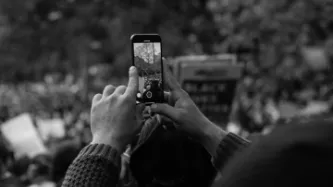Search
Content type: News & Analysis
In September 2019, PI published the report Your Mental Health for Sale. Our investigation looked into popular mental health websites and their data sharing practices.
Our findings suggest that, at the time of the research, most websites we looked at were using third party tracking for advertising purposes, sometimes relying on programmatic advertising technologies such as Real Time Bidding (RTB), sharing personal data with potentially thousands of actors. Some websites were also found sharing…
Content type: News & Analysis
A unanimous ruling by the Court of Appeal confirmed earlier findings that the rigid monthly income assessment regime set up by the Department of Work and Pensions - the entity responsible for issuing benefits - to calculate the amount of benefits to be paid out resulted in significant and unwarranted cash losses to benefits claimants. The Court of Appeal found that the failure by the Department of Work and Pensions to rectify the issue was unlawful.
The case is a clear example…
Content type: Video
When exposed to online political ads, individuals are usually - though not always - able to reliably identify the political actors behind the ad. However, there is little transparency in relation to the targeting mechanisms operating behind some of the ads - an users are rightly concerned.
Behind the social media curtain, political actors avail themselves of data collected through a range of sources to infer additional data about their voters. This…
Content type: Advocacy
The entire election cycle is increasingly data dependent. This is particularly the case with political campaigns which are ever more digital and data driven. This campaign environment presents novel challenges due to the scale and range of data available together with the multiplicity, complexity and speed of profiling and targeting techniques. All of this is characterised by its opacity and lack of accountability. Existing legal frameworks designed to curtail this exploitation often also fall…
Content type: News & Analysis
At a time where the mass surveillance of protests has been at the forefront, the UN High Commissioner for Human Rights released a timely report on the impact of new technologies on the promotion and protection of human rights in the context of assemblies, including peaceful protests.
The new report highlights the strong ties between protest and privacy and warns that “…the use of some such technologies to surveil or crack down on protesters can lead to human rights violations, including…
Content type: Case Study
The EU have been using foreign aid budgets, not to lift people out of poverty, but to export surveillance technologies used to repress people’s human rights all over the world.
A wave of anti-immigration fervour has swept across Europe in recent years. As leaders have come to power across Europe either on anti-immigration platforms or having to respond to an anti-immigration sentiment, the EU’s recent policies have been shaped by the drive to stop migration to Europe.
Surveillance…
Content type: Long Read
What Do We Know?
Palantir & the NHS
What You Don’t Know About Palantir in the UK
Steps We’re Taking
The Way Forward
This article was written by No Tech For Tyrants - an organisation that works on severing links between higher education, violent tech & hostile immigration environments.
Content type: Video
Gus talks to two of PI's lawyers - Ailidh and Ioannis - to find out why we're telling the EU commission to block the merger.
Find out more and sign the petition at: pvcy.org/notwatch
Music: Last Chance Saloon by Sepia
You can listen and subscribe to the podcast where ever you normally find your podcasts:
Spotify
Apple podcasts
Google podcasts
Castbox
Overcast
Pocket Casts
Peertube
Youtube
Stitcher
and more...
Content type: Case Study
Facial recognition technology (FRT) is fairly present in our daily lives, as an authentication method to unlock phones for example. Despite having useful applications, FRT can also be just another technology used by those in power to undermine our democracies and carry out mass surveillance. The biometric data collected by FRT can be as uniquely identifying as a fingerprint or DNA. The use of this technology by third parties, specially without your consent, violates your right to privacy.
The…
Content type: Long Read
In April 2018, Amazon acquired “Ring”, a smart security device company best known for its video doorbell, which allows Ring users to see, talk to, and record people who come to their doorsteps.
What started out as a company pitch on Shark Tank in 2013, led to the $839 million deal, which has been crucial for Amazon to expand on their concept of the XXI century smart home. It’s not just about convenience anymore, interconnected sensors and algorithms promise protection and provide a feeling of…
Content type: Explainer
The internet is filled with guides on how to file a Freedom of Information (FOI) request. Depending on the country you are in, it is likely that a local NGO – or your national freedom of information authority. – will have come up with one. The Global Investigative Journalism Network has an excellent list of FOI resources available in many countries across every continent. We really recommend you take a look at it; many of the FOI guides we love are in that repository.At PI we equally spend much…
Content type: Case Study
The Ugandan government has a running contract with the Chinese tech giant, Huawei, to supply and install CCTV cameras along major highways within the capital, Kampala, and other cities.
While details of the contract remain concealed from the public, the Uganda Police Force (UPF) released a statement, simply confirming its existing business partnership for telecommunication and surveillance hardware, and software between the security force and Huawei. However, it is not clear whether the…
Content type: Case Study
Well into the 21st century, Serbia still does not have a strong privacy culture, which has been left in the shadows of past regimes and widespread surveillance. Even today, direct police and security agencies’ access to communications metadata stored by mobile and internet operators makes mass surveillance possible.
However, a new threat to human rights and freedoms in Serbia has emerged. In early 2019, the Minister of Interior and the Police Director announced that Belgrade will receive “a…
Content type: Report
The majority of people today carry a mobile phone with them wherever they go, which they use to stay connected to the world. Yet an intrusive tool, known as an International Mobile Subscriber Identity catcher, or “IMSI catcher” is a form of surveillance equipment that enables governments and state authorities to conduct indiscriminate surveillance of mobile devices, and by extension, on users.
IMSI catchers can do much more than monitor and intercept mobile communications. Designed to imitate…
Content type: Examples
Although the Home Office does not record ethnicity data for detainees, analysis of nationalities of those recently held within the immigration detention estate found that citizens from countries with predominantly black and brown populations are held for substantially longer periods than those from predominantly white countries.
Around a third – approximately a 1,000 – being held in immigration detention centres were freed at the height of the coronavirus pandemic to try and stop the spread of…
Content type: Examples
Immigration rules that have left 1 million migrant workers in the UK at risk of destitution because they cannot claim universal credit should be suspended on public health grounds during the pandemic, a cross-party group of MPs has recommended.
The work and pensions select committee said the no recourse to public funds (NRPF) rule – which hit the headlines recently when Boris Johnson appeared not to be aware of its existence – meant many foreign nationals faced a choice of staying at home in…
Content type: News & Analysis
Name: Google/Fitbit mergerAge: GestatingAppearance: A bit dodgy. One of the world’s biggest tech giants, trying to purchase a company that makes fitness tracking devices, and therefore has huge amounts of our health data.I don’t get it. Basically Google is trying to buy Fitbit. As if Google doesn’t already have enough data about us, it now wants huge amounts of health data too.Oh, Fitbit, that’s that weird little watch-type-thing that people get for Christmas, wear for about a month while they…
Content type: News & Analysis
Last week, Facebook announced that it would allow voters in the United States to opt out of seeing social issue, electoral or political ads from candidates in their Facebook and Instagram feeds.
Whilst Facebook’s attempt to increase the agency of users during the election period is commendable, the binary choice left to voters to either see political ads or not see them at all is a limited and short-sighted one.
Real transparency concerns are still unaddressed
Whilst Facebook…
Content type: Video
Immediately following the UK general election in December 2019, we worked with Open Rights Group to commission a YouGov poll about public understanding and public opinion about the use of data-driven campaigning in elections.
The poll used a representative sample of 1,664 adults across the UK population.
'Data-driven political campaigning' is about using specific data about you to target specific messages at you. So, for this might involve knowing that you are, for example, likely to…
Content type: Video
This podcast is part of a special series from PI's Reproductive Rights and Privacy Project.
The series comes out on the last Monday of every month.
You can listen and subscribe to the podcast where ever you normally find your podcasts:
Spotify
Apple podcasts
Google podcasts
Castbox
Overcast
Pocket Casts
Peertube
Youtube
Stitcher
and more...
Content type: People
Nuno (he/him) is a Senior Technologist at PI. He conducts technical research, desk research and data analysis to inform our work and since joining has contributed to policy developments across several areas of PI's work.
Nuno is also coordinating our ongoing work on Public Education. The focus of this strand of work is the production and dissemination of trustworthy explainers and guides with the aim of assisting the public in enjoying their privacy rights in a more conscious and informed way.…
Content type: News & Analysis
IMSI catchers (or stingrays as they are known in the US) are one of the surveillance technologies that has come to the forefront again in the protests against police brutality and systemic racism that have been sparked by the murder of George Floyd on 25 May 2020.
An International Mobile Subscriber Identity catcher – in short an “IMSI catcher” – is an intrusive piece of technology that can be used to locate and track all mobile phones that are switched on in a certain area. It does so by…
Content type: Case Study
Chinese artist Ai Weiwei creates art that highlights the harmful effects of surveillance on society — and is himself a target of persistent surveillance by the Chinese government. In an article for Agence France-Presse, he said, "In my life, there is so much surveillance and monitoring -- my phone, my computer ... Our office has been searched, I have been searched, every day I am being followed, there are surveillance cameras in front of my house.”
Weiwei is an artist, blogger, documentary…
Content type: Long Read
Monday, 16 June 2025
It’s 7:33 am. Lila’s GoogBit watch vibrates. “You got 6 hours and 57 minutes of sleep last night, including 2 hours and 12 minutes of deep sleep”, the watch reads. “In total, you tossed and turned for 15 minutes only”. Taking into account Lila’s online browsing activity, her sleep pattern, the recent disruptions in some of her other biorhythms, as well as her daily schedule, GoogBit watch has calculated the very best minute to wake her up.
Content type: Call to Action
Google wants to know everything about you.It already holds a massive trove of data about you, but by announcing its plans to acquire the health and fitness tracker company Fitbit, it now clearly wants to get its hands on your health too. We don’t think any company should be allowed to accumulate this much intimate information about you. This is why we’re trying to stop its merger with Fitbit.Google and Fitbit need the European Commission’s approval before they can merge. The merger would have…
Content type: Examples
Excluded groups such as sex workers and asylum seekers are being left behind in the UK’s COVID-19 response as control measures amplify existing health inequalities and put life-saving advice and care further out of reach.
The closure of services and some GP registrations, a lack of access to technology, distrust and fear of authorities, unsuitable or insecure accommodation, and reduced income are among the many challenges facing people in vulnerable circumstances in England.
Doctors of…
Content type: Examples
South America has become the scene of one of the worst humanitarian crises in recent times. The crisis involving migrants and refugees from Venezuela involves children, adolescents, and young people who have left their country of origin to settle in surrounding countries, either due to political or economic reasons, sometimes both.
This study delves into the harsh reality of children, adolescents and young migrants and refugees from Venezuela who are caught up in the economic and political…
Content type: Press release
Today, the ICO has issued a long-awaited and critical report on Police practices regarding extraction of data from people's phones, including phones belonging to the victims of crime.
The report highlights numerous risks and failures by the police in terms of data protection and privacy rights. The report comes as a result of PI’s complaint, dating back to 2018, where we outlined our concerns about this intrusive practice, which involves extraction of data from devices of victims, witnesses…























